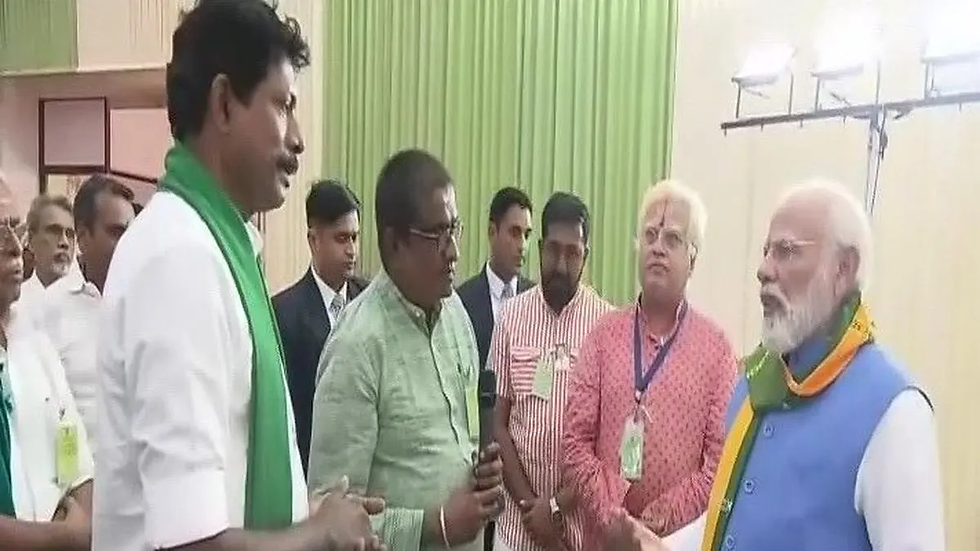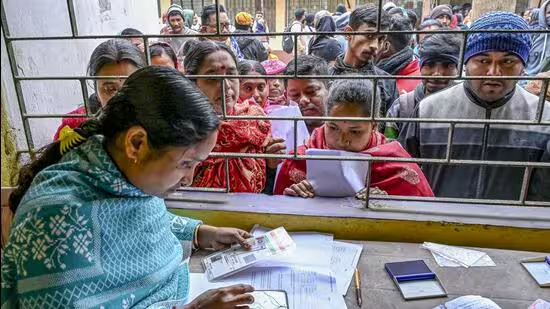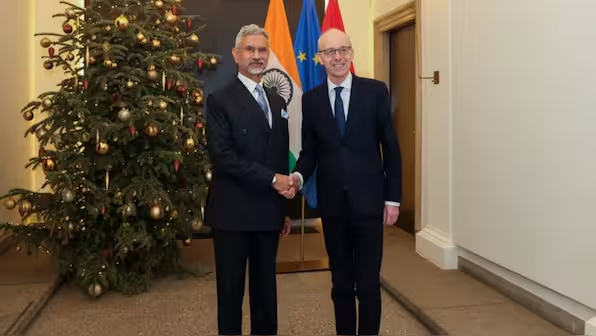India Strengthens Its Natural Farming Mission as PM Modi Inaugurates Summit in Coimbatore
- MGMMTeam

- Nov 19, 2025
- 3 min read
Prime Minister Narendra Modi’s visit to Coimbatore marked a significant milestone in India’s journey toward sustainable, low-input farming. At the CODISSIA Trade Fair Complex, the Prime Minister inaugurated the South India Natural Farming Summit 2025, an event designed to accelerate the country’s transition toward chemical-free agriculture. The summit brought together thousands of farmers, scientists, agri-startups, producer groups and policymakers from across South India, underlining the government’s commitment to regenerative farming practices that protect soil health and reduce input costs.

Interaction With Farmers and New Initiatives Launched
During the event, Modiji met with farmers who have adopted natural farming across Tamil Nadu and neighbouring states, listening to their experiences and encouraging wider adoption. He emphasised the importance of reducing dependence on chemical fertilisers and pesticides, highlighting the economic and ecological advantages of natural methods. The Prime Minister also released the 21st instalment of the PM-KISAN scheme, unlocking more than ₹18,000 crore for nine crore farmers nationwide. This announcement added momentum to the government’s broader rural-support framework, signalling that financial assistance and sustainable farming will go hand in hand.
Showcasing Innovations and Regional Leadership
The exhibition at the summit showcased natural-farming innovations, organic input models, community initiatives, and successful case studies from Tamil Nadu, Karnataka, Andhra Pradesh, Telangana and Kerala. Farmer-producer organisations and young agri-entrepreneurs presented new approaches to soil regeneration, water conservation and bio-fertiliser development. Coimbatore’s strategic role as a hub of agriculture and small-scale industries made it an ideal venue, reflecting the region’s strong commitment to eco-friendly agricultural transitions.
India’s Global Ambition in Natural Farming
Addressing the gathering, the Prime Minister noted that India is steadily emerging as a global hub for natural farming. He pointed out that agricultural exports have nearly doubled over the past decade, while youth participation in farming has increased due to modern technology, better value-addition opportunities and growing global demand for sustainably produced food. Modiji urged farmers to adopt the concept of “one acre, one season” for natural farming, enabling an easier and more secure transition that would allow them to evaluate and scale the method confidently.
The Road Ahead and the Need for Policy Support
The Prime Minister’s message highlighted the need for policy coherence and institutional support to ensure that natural farming moves beyond pilot projects and becomes mainstream. Training programmes, improved access to organic inputs, scientific validation of natural-farming models, and stronger market links were identified as key to long-term success. The summit also underscored the role of state governments and community institutions in ensuring that the enthusiasm generated translates into ground-level adoption.
The MGMM Outlook
India’s renewed push for natural farming, highlighted by Prime Minister Narendra Modi’s inauguration of the South India Natural Farming Summit in Coimbatore, reflects a national shift toward sustainable and farmer-centric agriculture. From our viewpoint, the event demonstrates how India is moving beyond traditional, chemical-heavy practices and adopting methods that protect soil, reduce input costs, and give farmers greater independence. The Prime Minister’s interaction with farmers, along with the release of the PM-KISAN instalment, reinforces that financial support and natural farming advancement must progress together. The innovations showcased—ranging from bio-fertilisers to community-led organic models—prove that South India is fast becoming a leader in regenerative agriculture.
India’s ambition to become a global natural-farming hub is becoming more realistic as youth, scientists, and agri-startups increasingly participate. Modiji’s call for the “one acre, one season” approach signals a practical transition plan that farmers can adopt without risk. However, the long-term success of this movement depends on consistent policy support, scientific backing, training, and stronger market access for natural produce. The Coimbatore summit is not just an event—it reflects India’s evolving agricultural identity, where sustainability, innovation and rural empowerment converge to shape a more resilient farming future.
(Sources: The HinduBusinessLine, Times of India, Indian Express)




Comments